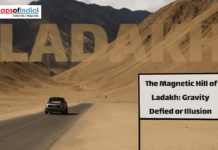It is often argued in the public sphere that colonisation in India ended the minute the imperial masters left Indian soil. It is also argued, on the other hand, that there is colonial baggage still. Most of the claims for the latter base their argument on the fact that there is a colonial mind set that can be wished away with constant awareness and vigilance. These debates often crop up into the realm of the historian as well.
There has been a recent spurt of writing nonetheless which seeks to do away the binaries that the last argument posits. Instead, it argues for something else. It locates the various practices of knowledge systems and subjectivities as pre-modern. In other words, it relegates those means and methods of study that contributed to a system of knowledge that existed before the advent of colonialism to a realm called the pre-modern. The pre-modern then is everything that existed before the colonials arrived: the way of life, the way of thought, the way of being itself, etc. Modernity or the modern, on the other hand, began for these cultural historians with the onslaught of colonialism.
When the colonials arrived, everything changed. Old knowledge systems were destroyed and new ones created, often with blatant racist overtones. The mastery or control of the subjugated with respect to power was total. To explain this, one need only consider the way the language changed. Not only was English as a tongue introduced but what were otherwise varied and local variations of the same language pinned down and cemented into a strict form. English words were introduced into local tongues, highlighting a change not just in the way of speaking but also in thought. What can’t be said, can’t be thought. If there was no previous existing word for a thing, it meant that that particular word or concept itself had not existed in the culture. Newer words in the same tongue or borrowed from foreign tongues had to be used.
A result of this was that subjectivity itself changed. People consciousness, in a manner of speaking, began to change. Mastery or domination then according to this claim was total. Not only were older ways of life taken away and newer more “modern” ones introduced due to colonialism, but the very fabric of being changed. So response to the colonial powers could only be through the tools accorded to them through that process of change. If modernity was the spirit of the age, people’s response, their questioning of the modern power could also only be modern. The mastery was such that any form of acceptance or rejection of colonial rule could only be through colonial means and methods.
Uncritical acceptance of the same required imbibing and letting oneself be brainwashed to passively accept a new form of dominance. Partial rejection too was only possible using the means and the tools provided by the coloniser. Outright rejection according to this argument was not possible. The mastery was complete.



